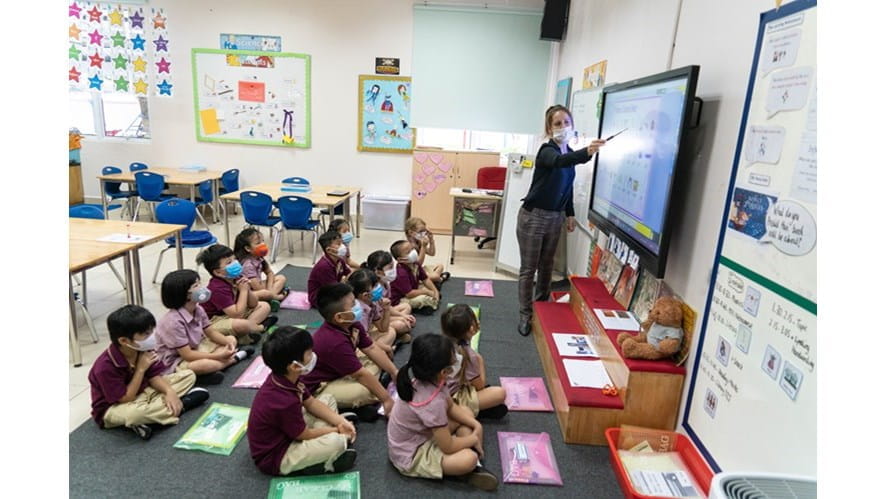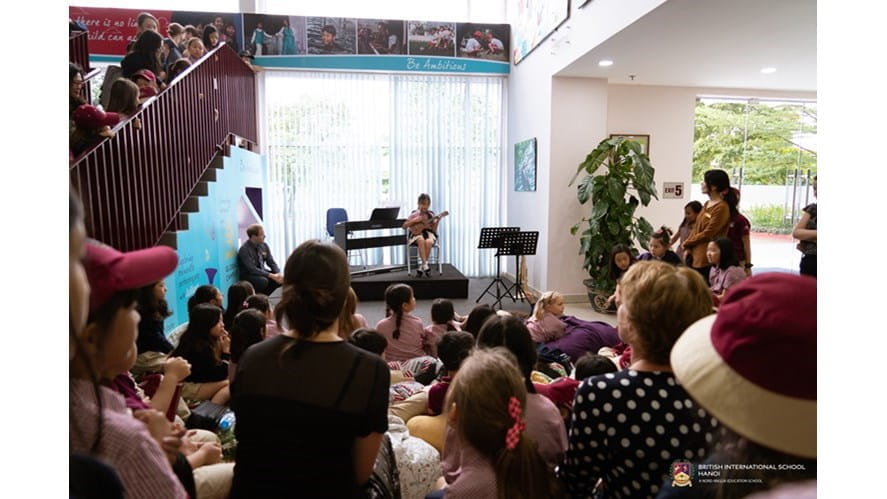Primary Assessment Week at BIS Hanoi
Each year, towards the end of term, BIS Primary students participate in an assessment week to support the teacher’s judgement of student attainment over the year. This year, it has moved online and for the last two weeks, our teachers and teaching assistants have been extremely busy carrying out individual student assessments, the results of which will be shared with you in the student reports soon.
Each year, towards the end of term, BIS Primary students participate in an assessment week to support the teacher’s judgement of student attainment over the year. This year, it has moved online and for the last two weeks, our teachers and teaching assistants have been extremely busy carrying out individual student assessments, the results of which will be shared with you in the student reports soon.
Writing
At the beginning of each writing topic, each student completes an independent piece of writing called a ‘launchpad’. This piece of writing assists our teacher in assessing our students’ prior knowledge of the writing genre and informs what will be taught over the next three to four weeks. When the students have finished their learning, they write an independent ‘showcase’ allowing them to demonstrate what they have learnt throughout the topic. Our teacher then utilizes the ‘launchpad’ and ‘showcase’ to determine how far the student has progressed in terms of core writing skills. They also use evidence from writing in the students’ workbooks across English, Science and IPC Topic to make their final judgements. This year, the showcases were written independently at home and shared with the teacher.
Reading
Reading is evaluated daily through specific questioning in whole-class reading. Students also read weekly on an one-on-one basis with the class teacher or teaching assistant. To support their ongoing assessment data, our teachers also carry out a one-on-one reading exam every six to eight weeks. They use set texts from the Big Cat scheme with levelled assessment questions to determine if a student is ready to advance to the next Big Cat level. They will also use their notes from Whole Class reading and our BIS reading tracker to finalise their judgements. This year’s one-on-one reading assessment took place online with the class teacher.
Phonics
Phonics is assessed at 6 different points throughout the year for students in F3 through to Year 2, as they usually make rapid progress through the Phonic phases. The assessment is completed on a one-to-one to basis by the teacher, who checks the pronunciation of letter sounds as well as the blending and segmenting skills needed to read. The phonics assessments went smoothly online, with one-on-one checks taking place over the last two weeks.
Maths
Using ‘Assessment for Learning’ strategies at the beginning of a new topic provides our teacher with a clear overview of what knowledge and skills our students currently have and what the teacher needs to teach them next. Assessments occurs daily through class discussion, data from MyiMaths and bookwork. At the end of each term, students sit a “Progress in Understanding Mathematics Assessment (PUMA)” test to support the teacher’s assessment of their mathematical performance during the term. Some of our students took the PUMA test online, while Year 6 trialed a new assessment linked to the White Rose Mastery scheme. However, in many cases, our teacher already had sufficient evidence to make their end-of-year attainment decisions.
Here are some of the distinguishing features of our school's evaluation process. I hope that this article will help explain how our assessment procedures work at BIS Hanoi.
Kate L Fitzpatrick
Head of Primary





